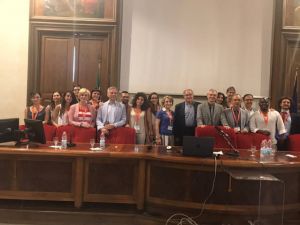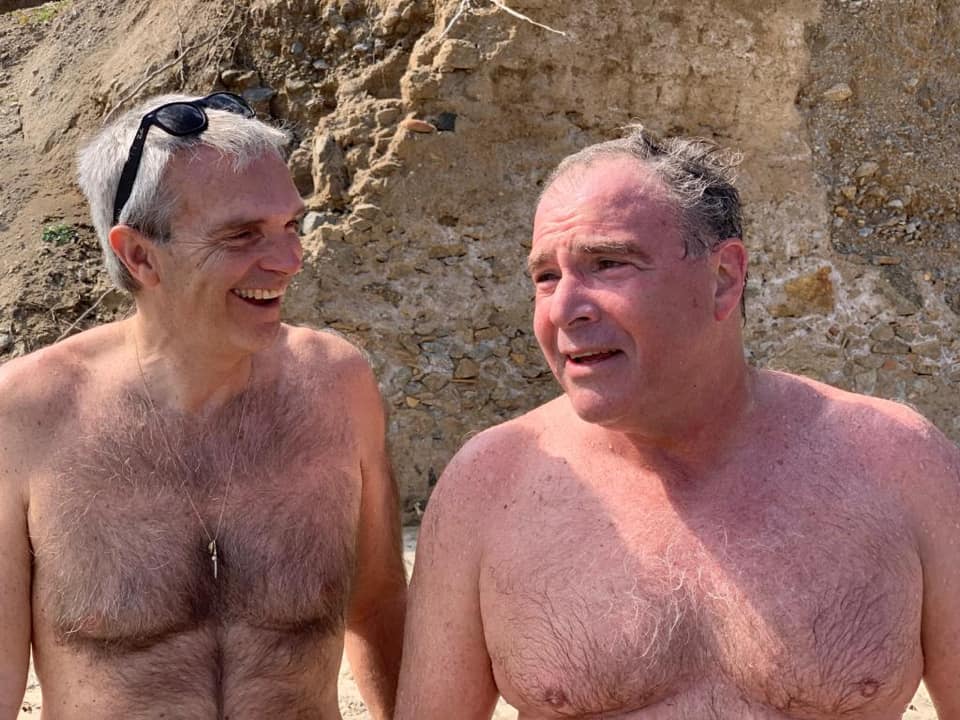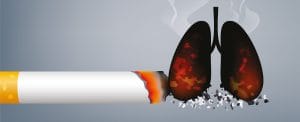Leggi anche la versione italiana
By Derek Yach, president of Foundation for a Smoke Free World
 The Strait of Messina between Sicily and Calabria, Italy, has seen ancient civilizations come and go. Conquer and be conquered. Odysseus describes how Scylla, a six-headed monster, awaits sailors on the one shore and Charybdis,a giant whirlpool, is ready to swallow the entire ship.
The Strait of Messina between Sicily and Calabria, Italy, has seen ancient civilizations come and go. Conquer and be conquered. Odysseus describes how Scylla, a six-headed monster, awaits sailors on the one shore and Charybdis,a giant whirlpool, is ready to swallow the entire ship.
In the face of these dangers, what does one do?
Similar challenges face researchers and scientists committed to developing better ways to end smoking and doing so by working with the Foundation for a Smoke-Free World on cessation and harm reduction. Despite our independence, there are those who warn that engagement with the Foundation will be met with a “Scylla-like” response from the global health community and if that fails, they will be shunned, ignored, and sucked into a “Charybdis-like” scientific oblivion.
In the face of such threats, what does one do?
I swim daily and I know that helps me be ready for tough challenges at sea and on land. I love the Greek mythology related to the Strait of Messina and know it describes the struggles we all must overcome, often at considerable personal and professional cost. This is something smokers do every day. We know many seek to break their addiction or at least decrease their risks. They seek full lives on their terms and are influenced only marginally by government policies.
 Dr. Riccardo Polosa, a world-renowned researcher into harm reduction,and his colleagues at the University of Catania understand these struggles. For many years they have provided the basis for deepening our scientific understanding of how to end smoking faster. The last few years has brought the needed technology breakthroughs we can capitalize on to do this even as we continue to seek breakthroughs in cessation. The emergence of tobacco harm reduction products and their rapid uptake by millions of people across Asia, Europe, and the United States shows just how strong the demand for ways to address smoking is among those who matter – smokers
Dr. Riccardo Polosa, a world-renowned researcher into harm reduction,and his colleagues at the University of Catania understand these struggles. For many years they have provided the basis for deepening our scientific understanding of how to end smoking faster. The last few years has brought the needed technology breakthroughs we can capitalize on to do this even as we continue to seek breakthroughs in cessation. The emergence of tobacco harm reduction products and their rapid uptake by millions of people across Asia, Europe, and the United States shows just how strong the demand for ways to address smoking is among those who matter – smokers
 During a recent eventat the Center of Excellence for the Acceleration of Harm Reduction (CoEHAR) at the University of Catania, researchers outlined nine projects that will be stimulated through the Center. Specific research questions are important to advance knowledge. The involvement of multidisciplinary teams that bring together academics and students from across the whole university is a needed hallmark of their approach to building the next generation of innovative leaders able to break the traditional models of tobacco control. For decades we have sought an infusion of new ideas, new people, and – never to be ignored – new money. Without these elements, we will be unable to address the many concerns raised recently in a research report in The BMJ regarding the slow progress to end smoking.
During a recent eventat the Center of Excellence for the Acceleration of Harm Reduction (CoEHAR) at the University of Catania, researchers outlined nine projects that will be stimulated through the Center. Specific research questions are important to advance knowledge. The involvement of multidisciplinary teams that bring together academics and students from across the whole university is a needed hallmark of their approach to building the next generation of innovative leaders able to break the traditional models of tobacco control. For decades we have sought an infusion of new ideas, new people, and – never to be ignored – new money. Without these elements, we will be unable to address the many concerns raised recently in a research report in The BMJ regarding the slow progress to end smoking.


 After the CoEHAR event, the team joined me in a celebratory and symbolic swim across the Strait. Why symbolic? We broke free of the island and connected with mainland. And we encountered no monsters or whirlpools.
After the CoEHAR event, the team joined me in a celebratory and symbolic swim across the Strait. Why symbolic? We broke free of the island and connected with mainland. And we encountered no monsters or whirlpools.

